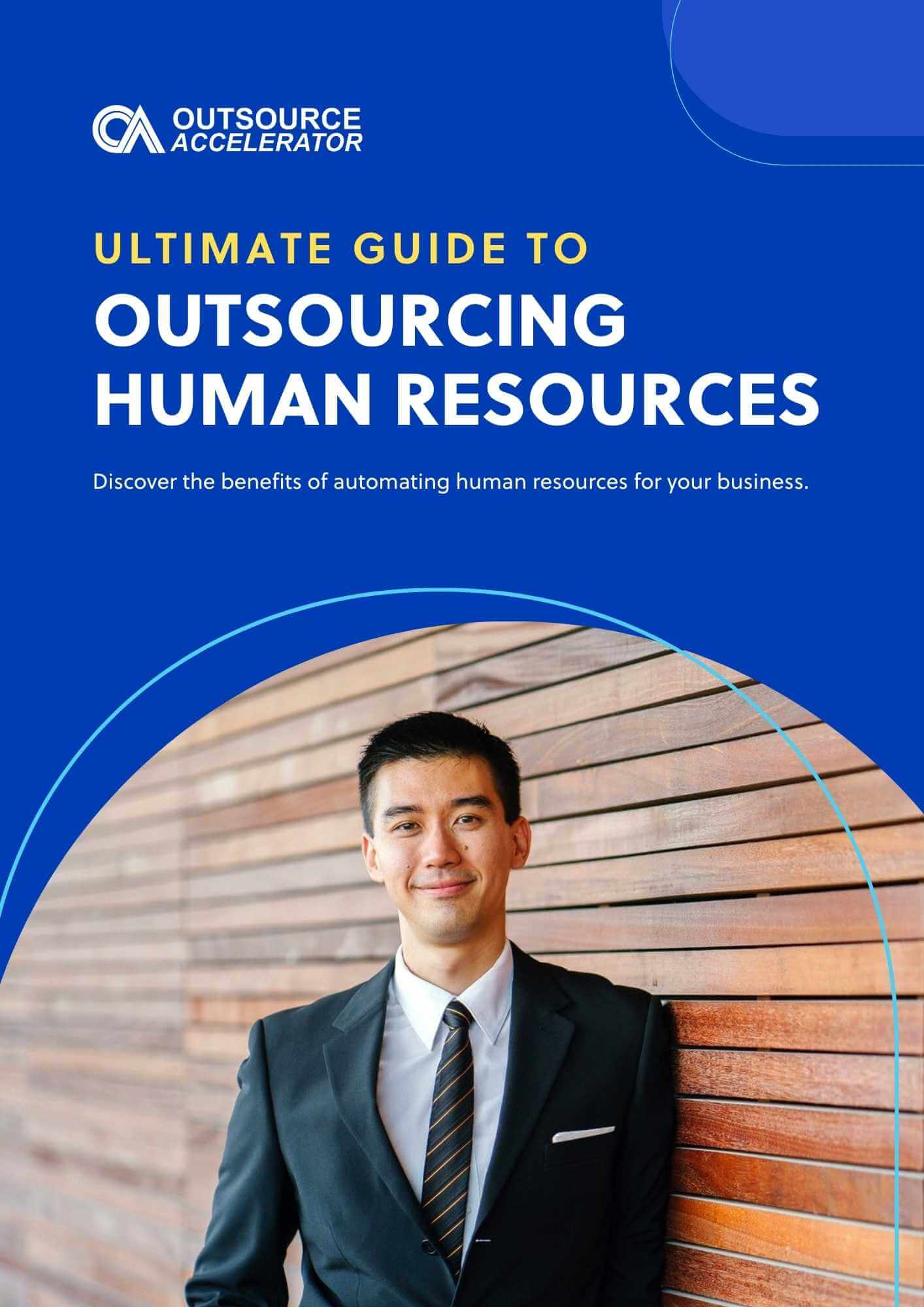Comprehensive guide to outsourcing human resources


Get the easy-read PDF version to your inbox now
Human resources, or HR for short, is a staple component for any business. The key element that an HR department engages is, of course, the human element, or the aspects of business operations that involve, among the following: managing personnel, overseeing payroll and taxes, keeping all employee records, monitoring compliance to national and federal labor laws, recruitment, and training and development opportunities, just to name a few.
Today’s business sector is definitely different from how it used to be before the turn of the millennium, what with the rise of cutting-edge and accessible technologies, the opening-up of new global trade hubs, and the evening-out of playing fields for big multinationals and small-to-medium enterprises (SMEs) alike. But one thing that remains unchanged is how anchored an institution’s successes (and failures) are in its employees.
A quote by renowned HR specialist Ken Robinson comes to mind: “Human resources are like natural resources; they’re often buried deep. You have to go looking for them, they’re not just lying around the surface. You have to create the circumstances where they show themselves.” We agree with Mr. Robinson in that finding the good people, persuading them to stay, and keeping up system that nurtures their true potential is the timeless formula for lasting success. But we also make the case for finding these hidden jewels— “diamonds in the rough” just waiting to shine through—in an innovative new business model. That model is outsourcing.
For those still new to the unique trends of business process outsourcing (BPO), contracting strangers offshore may be a source for the jitters. How can it be assured that professionals outside the company can handle complex tasks, such as processing classified information, updating employee service records and wages, and making sure that company policy is properly aligned with the law?
Two things are evident in the case of still-growing businesses. First, they may not have the numbers—and therefore the money and machinery—to operate large and fully equipped in-house HR departments like big business magnates. As such, allocating a lot of funds and manpower to a business process that is not profit-generating in the first place may cause severe bleeding. Second, they still do need the expertise, and a fully operational HR system outside of an in-house department will still work wonders—and that is the gap that outsourcing will help close.
Outsourcing can offer companies of all sizes myriad ways to fulfill business processes with high levels of performance, at high levels of value. This certainly applies to HR, as HR services are now as widely contracted offshore as customer service, finance and accounting, web development, and digital marketing.
We also put our faith in the Philippine BPO sector, and we think it should be your starting point in scouting around for HR services. The country’s reputation for global standard delivery is one of the best out there, and they have a deep pool of talent for people rightly suited to this job. HR is also the perfect channel for Filipino values that we’d love to showcase to the world, and that we’re sure your business would benefit from: exceptional hospitality, adaptability, attention to detail, and family- and community-orientedness.
Thus, here’s our comprehensive guide to this topic. Our discussion comprises the benefits of outsourcing your company’s core HR functions; the HR services typically offered through the outsourcing model; an assessment of the typical cost of outsourcing HR to a Philippine BPO company; some tips on how to commission the right HR provider; and a stalwart case for choosing a Filipino contractor for the job.
We wish you a fruitful and productive journey into outsourcing, and we look forward to the stability and growth of your business and its people!








 Independent
Independent




